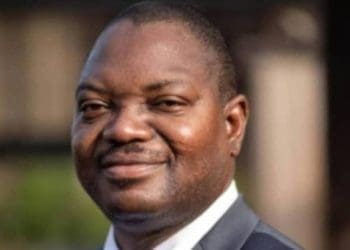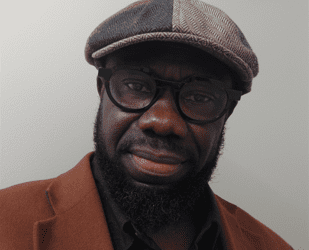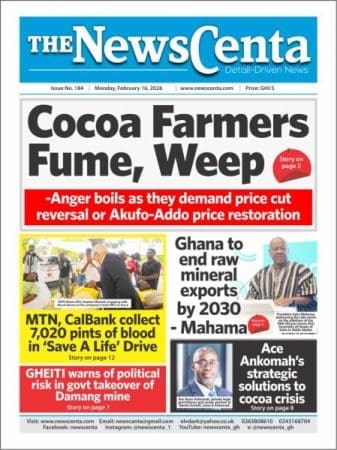Before Nollywood, Ghanaians knew when to say ‘Kedu’ (Igbo for how are you) and ‘O di mma,’ (I am fine). When we hear ‘Igbo kwenu’, the average Ghanaian can relate to a rallying call in a community.
Conversely, it is almost natural for Nigerians to answer ‘Charley bokoo’ when we say ‘Etesen’.
These natural and organic symbioses are refreshing sides to the jollof and football rivalry that have kept our two nations together before political independence from the British.
Suddenly, the rivalry is beginning to lose its friendly texture and the brother on the other side feels the need to protect his turf.
They say it is fine to hear ‘Igbo kwenu’ on our television screens, but not when the actors are on Ghanaian soil inside a Kingdom sprawled over a 250 acre land. ‘Biko, mba’ (please, No). Mba, mba.
Nigeria people’s street
Long before Ola Rotimi warned the butterfly not to think himself a bird in ‘The God’s Are Not To Blame’, Chinua Achebe had foretold Ghanaians in ‘Things Fall Apart’, that the Igbo people of Nigeria would be seeking to build a Kingdom on Ningo land, and that when they do, Ghanaians should not feel threatened: “A man who calls his kinsman to a feast does not do so to redeem them from starving.
They all have food in their own houses.” So, we do not ask why the Igbo’s did not build their Kingdom in Anambra or Lagos when we have already accepted them in Accra and allowed them to marry our women.
They have come to share our yam, to solidify our natural bond as West Africans, and promote our shared identity.
Achebe had also warned Ghanaians about the dangers of giving away land to the Igbos: “Land is the only thing in the world that amounts to anything. It is the only thing worth fighting for…” But how would the Igbos know this, since in Achebe’s words, “they do not speak our tongue and do not understand our custom about [Ningo] lands”.
When you give too much to a stranger, they will put a knife in the things that hold us together, and we will soon fall apart. Achebe warned again.
Haven’t we given too much to Nigerians already? And has Nigeria not given a lot more to Omo Ghana in the past?
There is an Igbo Kingdom on nearly every street in Ghana today, except that we have missed them because they do not look palatial.
The street behind me at Kwabenya is owned by Igbos who have acquired lands and built or rented tastefully designed houses on a long stretch.
The street behind them would pass for any place in Abeokuta, and neighbours have long called it the Nigerian people’s street. The Ghanaian landlords on the opposite streets had previously sworn never to rent their houses to Nigerians, but they seemed to have cowered under the weight of their dollars and didn’t care how they made it.
The previous tenants, Ghanaians, could not pay up. They were bad for business.
Suspicions and situationships
Every relationship has terms. Often, when the parties become very close and begin to complete each other’s sentences, it is difficult to revisit the terms when the relationship grows sour.
It becomes a situationship governed by hypocrisy, pretense, and suspicions.
This is the nature of the Ghanaian-Nigerian relationship.
The apparitions of this situationship manifested in how Roney Gogo, the communication person of the Igbo community in Ghana, was quick to deny reports that the Igbo leader intended to acquire Ningo lands for a Kingdom, when there is clear video evidence to the contrary.

It shows how Ghanaians are quick to refer to Nigeria as a big brother, even though they only remember the bullying size of the brother, and do not appreciate his derring-do hunger for bad money.
To put this situationship to test, I sat with Nwankwo, Muyiwa and Ola, three very intelligent Nigerians I have been accustomed to as brothers and work colleagues.
Indeed, I am usually mistaken for a Nigerian because of my natural association with people who look like me in the midst of many other colours in Canada.
Each one of these men has visited Ghana and also experienced some aspects of the Ghanaian culture while in Nigeria.
They had all been taught by Ghanaian teachers when they were growing up.
They even remember their names. When I tabled the raging topic in Ghana about an Igbo King who has appointed community subchiefs as extensions of his influence in Ghana, and has even decorated some Ghanaian celebrities with traditional Igbo titles, they laughed heartily but didn’t look too surprised.
Big brother questions
When I asked what they thought about the Eze-Igbo acquiring a 250 acre land for a supposed Igbo Kingdom, one of them queried the propriety of the venture, insisting that Ghanaians should make sure he pays up fully.
The exchanges that followed betrayed our suspicions about the quirks (peculiar character) and quiddities (inherent nature) of our respective countries.
My Nigerian friends were unanimous when I asked them to describe the typical Nigerian character in three ways: dominating, venturesome and strong hunger for money.
About ‘Ghananians’, they reported that they are hardworking, easy to deal with but gentle on money.
Nigerians, I have observed, seem to look at Ghanaians with some respect while the Ghanaian struggles to think beyond our suspicions.
Beyond our collective angst towards the hypothesis of a 250 acre Igbo Kingdom in Ningo, we should seek to answer the bigger questions Nigeria has quizzed Ghana, to assert their big brother hegemony.
First, Nigeria has answered the Shakespeare question in Wole Soyinka, who is also a Literature Nobel Laureate. Ghana has not produced any writer of global significance.
We do not have any answers to Chimamanda Adichie. We have not answered Anthony Joshua, Davido or Burna Boy. No good answers on Netflix.
It is said a lion’s liver is a vain wish for dogs, but not when you have a kingdom.
Tissues Of The Issues
bigfrontiers@gmail.com
Ottawa, Canada












